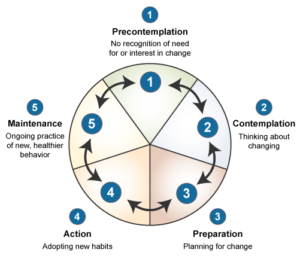
by Dr.Moira Borg MD Gestalt Psychotherapist
Whether we like it or not, we inevitably change along the course of our lives be in the physical, emotional or social aspect. Our bodies grow initially in size, then progressively age and wither till we again become as dependent as we were in the first days of our existence. In a parallel process, our psyche passes through the same phenomenon being initially more open to the influence of the outside and gradually becoming more insular as we place more of our influence and authority in our choices. Such is the natural cycle of our existence.
Unfortunately our life does not always follow such a smooth balance and there are times when we are faced with certain life events, such as natural disasters, loss or illness, that truly challenge our existence and seriously question who we are and where we are heading. It is during these times, where are find ourselves standing dazed in the cross-roads of life, that we actually face our real duel with choice and change.
Defined in the simplest terms change is seen as a way of doing things differently (Merriam Webster dictionary). In psychology, change has been researched extensively in the last two decades, especially in relation to drug addiction and in 1992, Prochaska, diClemente and Norcross put forward a integrative model – the Transtheoretic Model (TTM) – that not only assesses one’s readiness to work towards a new and healthier behaviour but also provides strategies or processes to guide such a change. The model is composed of constructs such as: stages of change (see diagram below), processes of change and levels of change which provide clarity of understanding the psychological dynamics involved but in no way reflect the anguish and suffering of the actual existential struggles.
Stages in the Transtheoretical Model of Change (1992)
The take-home message of this model is that the driving force behind any change lies within not outside the individual. Although the stimulus usually lies in an external event it is the individual that ultimately decides to respond to it and devise ways of affecting that change and putting to fruitful use the support at hand.
Having had the honour of experiencing and supporting the struggles of many in my work, I believe that the start of a new year can rarely present such a stimulus to change it being more of a temporal incentive than an existential one. In my experience change is usually borne out of suffering and shame not an inebriated toast at the turn of the calendar. My hope is that we collectively start giving it its due dose of dignity, reflection and responsibility with the aim of becoming better individuals and subsequently improve both our existence and that of the world around us.
Time changes everything except something within us which is always surprised by change.
Thomas Hardy

